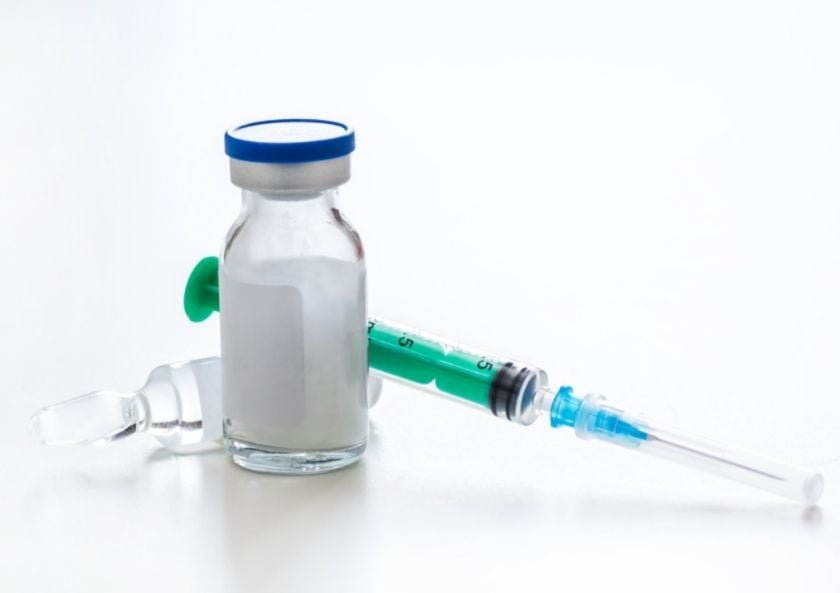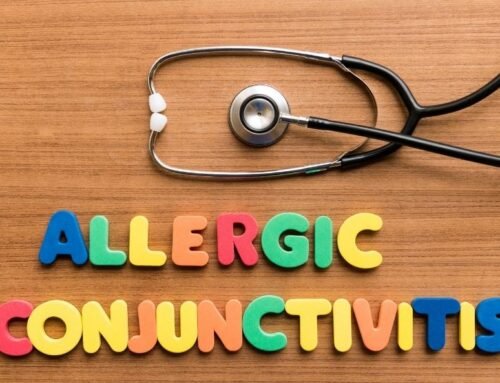Allergy vaccines (immunotherapy) is an alternative treatment method that is used when allergic rhinitis (hay fever) and asthmatic patients cannot be achieved with medication and it has been used for more than a hundred years. The basis of treatment in allergy vaccines, starting from small doses and gradually increasing doses, decreases the sensitivity of the allergen and therefore allergy.
Who can Get Vaccine Treatment?
Allergy vaccines are made in allergic rhinitis (hay fever), asthma, bee allergy and some food allergies in recent years. In children with symptoms related to allergic disease, the allergen should be detected by the pediatric allergist by making skin allergy test. If the child’s findings are compatible with the allergen detected in the skin test, that is, when he encounters that allergen, his complaints are increasing, vaccination can be done against this allergen. The only specialist in deciding on vaccination treatment for children and how to do it, is the child allergy specialist.
What are the Vaccination Methods?
Allergy vaccines are two types of drugs, subcutaneous injection and drops and tablets applied under the tongue. In recent years, oral vaccination method has also been used for foods.
Subcutaneous shot vaccine therapy (subcutaneous immunotherapy) is the method applied by injecting the allergen that the child is sensitive to under the skin in the form of a water-soluble standardized solution. In this method, starting with a low dose, the doses are increased at certain intervals. Initially, vaccination is done weekly, then 15 days and then 1 month intervals. Duration varies between 3-5 years, but on average is 4 years.
In the sublingual immunotherapy method under the tongue, the allergen prepared in the form of tablets or drops are used every day for 3 years. After applying the first few doses in the hospital, the patient continues to use it at home.
Vaccination method known as oral immunotherapy is applied for food allergy. It is performed in children who have reached a certain age and have not developed tolerance. It is based on the principle that the allergic food is consumed in increasing doses as in other methods and consumed at the same dose every day after a certain amount is reached.
Which allergens can be vaccinated against?
In the subcutaneous vaccination method, vaccination against weed pollen (weed mixtures or specified specific herbs), house dust mites (mite), fungi, various tree pollen (olives, ash, etc.), animal epithelium (cat hair) can be made.
It is also applied to foods, especially milk, eggs and peanuts.
What does the allergy vaccine contain?
Allergy vaccines contain only the standardized patient-sensitive allergen and some carrier substances to which the allergen called adjuvant is bound to increase the effectiveness of the vaccine. Apart from that, there are no drugs, especially cortisone.
When can vaccine treatment start?
Subcutaneous vaccines are recommended after 5 years of age, and sublingual vaccines are recommended after 3 years of age. For food allergy, although there is no standard recommendation like the others, it is generally done in children who are 3-4 years old and who do not develop tolerance to food.
What is the benefit of allergy vaccines (immunotherapy)?
Allergy vaccine therapy has proven to be an effective treatment. Vaccine therapy is the only method of treatment that affects the mechanism of allergic diseases today. In the majority of patients, complaints are completely resolved or reduced. Thus, both the need for medication decreases and the quality of life increases. It also reduces the development of asthma and susceptibility to new allergens, unlike drug therapy in patients with allergic rhinitis. However, some patients may not benefit.
The most important factor in success is choosing the right patient and applying the correct vaccine. For this reason, vaccine treatment for pediatric patients should be applied by pediatric allergy specialists who are trained and experienced in this field.
What is the side effect of allergy vaccines (immunotherapy) treatment?
The most important side effect of allergy vaccines is that they cause allergies. Sublingual vaccines do not have any serious side effects, mostly itching and irritation in the mouth and disappears if the vaccine is continued. In subcutaneous vaccines, there may be mild symptoms such as swelling or nasal congestion, itching in the eyes and throat, and skin rash. In such cases, treatment can be continued by adjusting the dose. But rarely there may be serious reactions that endanger life in the form of allergic shock (anaphylaxis). In such a case, the vaccine is terminated.
Where should the vaccine treatment be applied?
Sublingual vaccines can be administered at home as there is no serious reaction. However, subcutaneous vaccine treatment must be carried out under the supervision of a doctor in a healthcare facility where the necessary intervention can be made when there is a serious reaction. Due to the risk of reaction, patient should be waited for at least 0.5-1 hour in a health facility.
When does the effect of vaccine treatment begin?
The effect of vaccine treatment begins 6 months after it is started. At the end of the first year, its effect is fully visible. If no improvement is observed after 1 year of application, the treatment is terminated.
How is the effectiveness of the allergy vaccine monitored?
The effectiveness of the allergy vaccine is evaluated by monitoring the patient’s complaints. Although there are various studies on this subject, there is no reliable laboratory method today. Although the severity of the reaction decreases in the allergy test made from the skin after vaccination, it is not useful to measure the effectiveness of the vaccine.
What is the duration of effect of the allergy vaccines?
Studies have shown that after the completion of allergy vaccines, it protects for approximately 12 years.
How should vaccines be stored?
It should be stored between 2 and 8 degrees on the refrigerator shelf or cover. It should not be placed in the freezer or deep freeze. It should not be kept out of the refrigerator. If kept out of the refrigerator for a long time, the vaccine has no effect. For this reason, subcutaneous vaccines are usually kept by the organization so it does not deteriorate during transport.
What are the conditions where allergy vaccines (immunotherapy) should not be done?
There are cases when allergy vaccines should not be given. The first of these is the development of an allergic shock when vaccinating. Other situations are;
- Severe and uncontrolled asthma
- Autoimmune diseases
- Immune deficiencies
- Heart and blood pressure medications called beta-blockers and ACE inhibitors
- Cancer diseases
- Cardiovascular diseases
- Serious chronic and inflammatory diseases
As a result;
- Allergy vaccines are a treatment method when drug treatment is not achieved successfully.
- Allergy vaccine treatment is done against allergic rhinitis (hay fever), asthma, bee allergy and some foods.
- Allergy vaccination methods are in three forms: subcutaneous, sublingual and sublingual for foods.
- Allergy vaccines are started at the age of 5 in the subcutaneous vaccine, 3 in the sublingual and generally 3-4 years in food allergy.
- The effect of allergy vaccines begins after 6 months and full effect is observed in 1 year.
- Although allergy vaccines do not have a serious side effect, oral vaccines for nutrients and subcutaneous vaccines can rarely develop an allergic shock called anaphylaxis.
- The decision to start allergy vaccines for children and the selection of the appropriate vaccine must be given by pediatric allergy specialists trained and experienced in this field.






